How to Delete Synced Photos & Other Media From iPhone
Need to delete synced photos from your iPhone? This quick tutorial will walk you through simple steps to clear unwanted synced content from your device. From using your computer to handle synced photos to adjusting settings to avoid future issues, we’ve got you covered.
How to Delete Synced Photos from iPhone
If you need to clear up space on your iPhone, you can delete synced photos directly using your computer. This method doesn’t require you to use iTunes, due to the features of newer versions of macOS or Windows.
- Start by plugging your iPhone into your computer using the USB cable.
- On a Mac, open Finder. On a Windows PC, open File Explorer. These programs let you manage and browse the files on your devices.

- Look for your iPhone listed under ‘Locations’ in Finder or ‘Devices and drives’ in File Explorer. Clicking on your iPhone will show its internal storage and files.
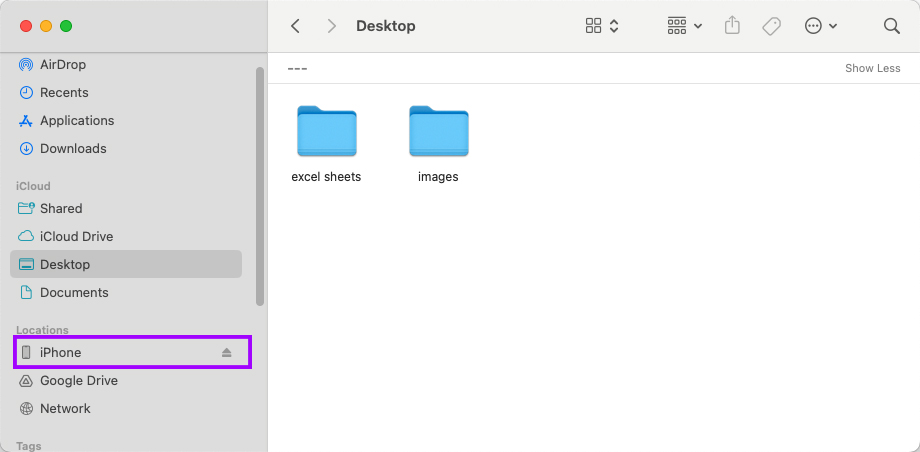
- In the window for your iPhone, find and click on the ‘Photos’ tab. Here you’ll see all the albums that are currently stored on your iPhone.
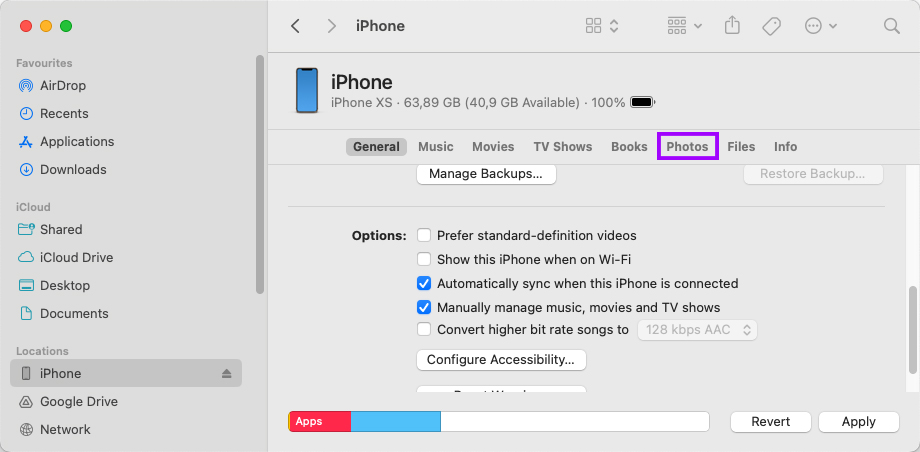
- Uncheck any albums or photos you want to delete. On Windows simply select unwanted photos and press delete. On Mac after making your selections, left-click on ‘Apply’. This will remove the unchecked photos from your iPhone, freeing up space.
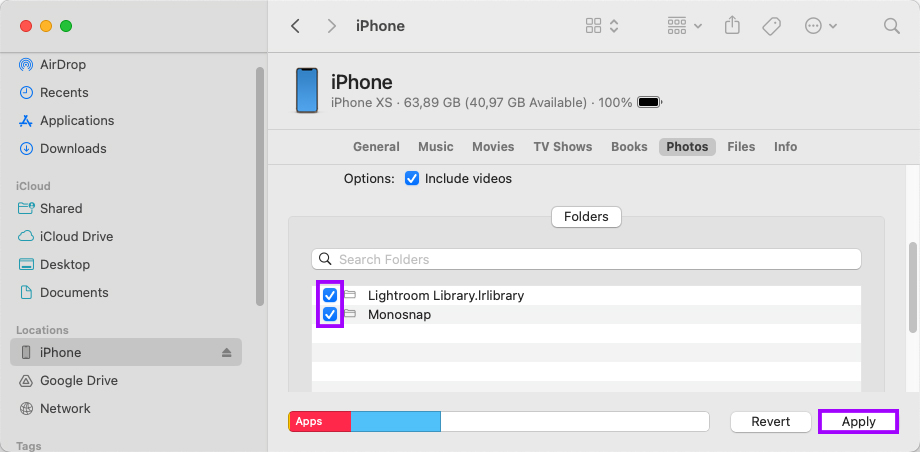
How to Delete Other Synced Media Types
If your videos, audiobooks, music, or podcasts were synced from a computer, you need to adjust the sync settings via the same computer to remove them from your iPhone.
- Use a USB cable to connect your iPhone to the computer where the videos were originally synced.
- On macOS Catalina or later, use Finder. On older macOS versions or Windows, use iTunes.

- In iTunes, click on the device icon near the top. In Finder, find your device listed on the left sidebar.

- Select the tab for the appropriate media type depending on which type of media you want to manage
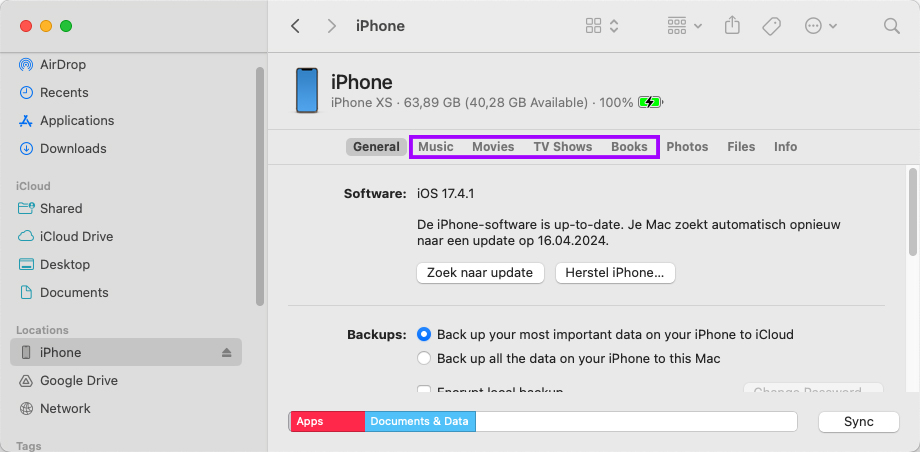
- Uncheck the boxes next to the media you want to delete from your iPhone.
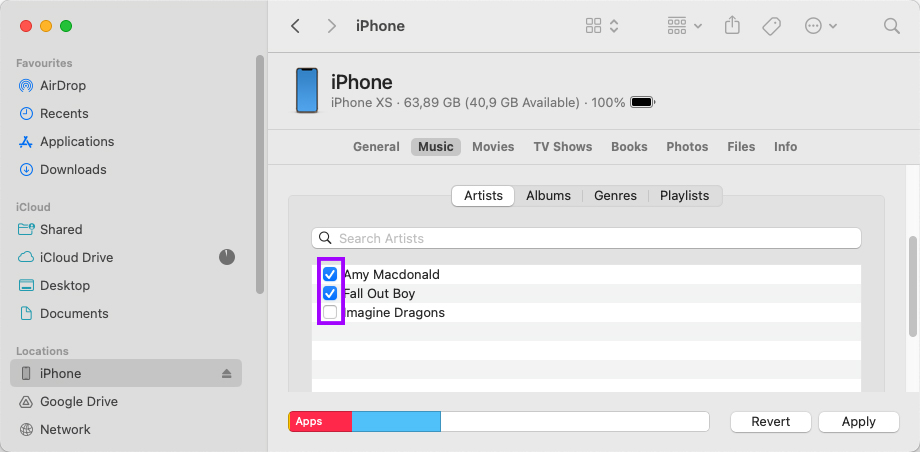
- Click the ‘Apply’ or ‘Sync’ button to update your sync settings. The media you deselected will be removed from your iPhone.
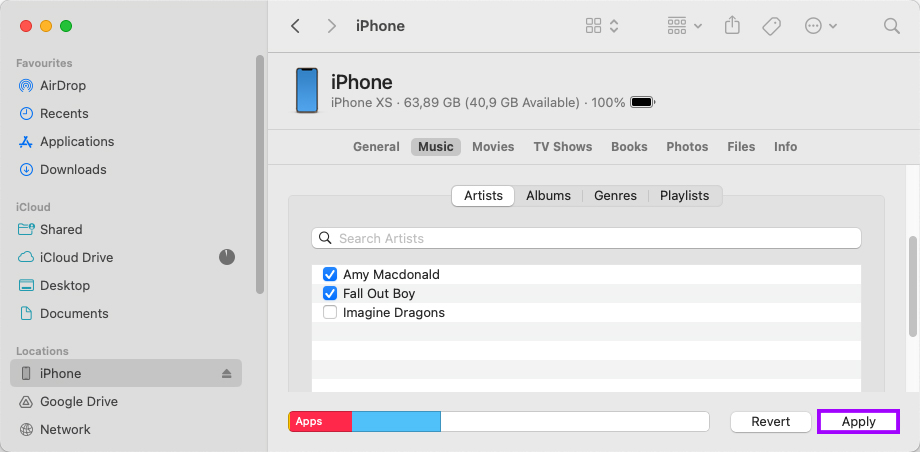
For media that were added to your iPhone manually or downloaded directly (such as through the TV app), follow these steps to delete them:
- Navigate to where your videos are stored within the app.
- Scroll through your library or playlists to locate the media.
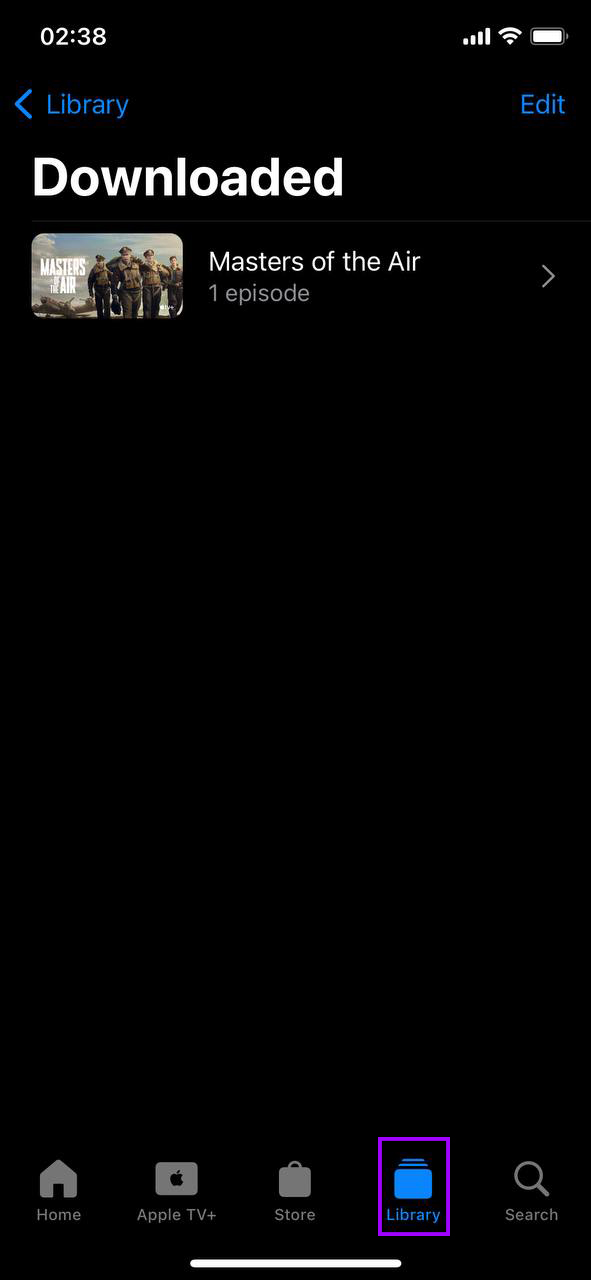
- Tap Edit, select your media, and then tap Delete.
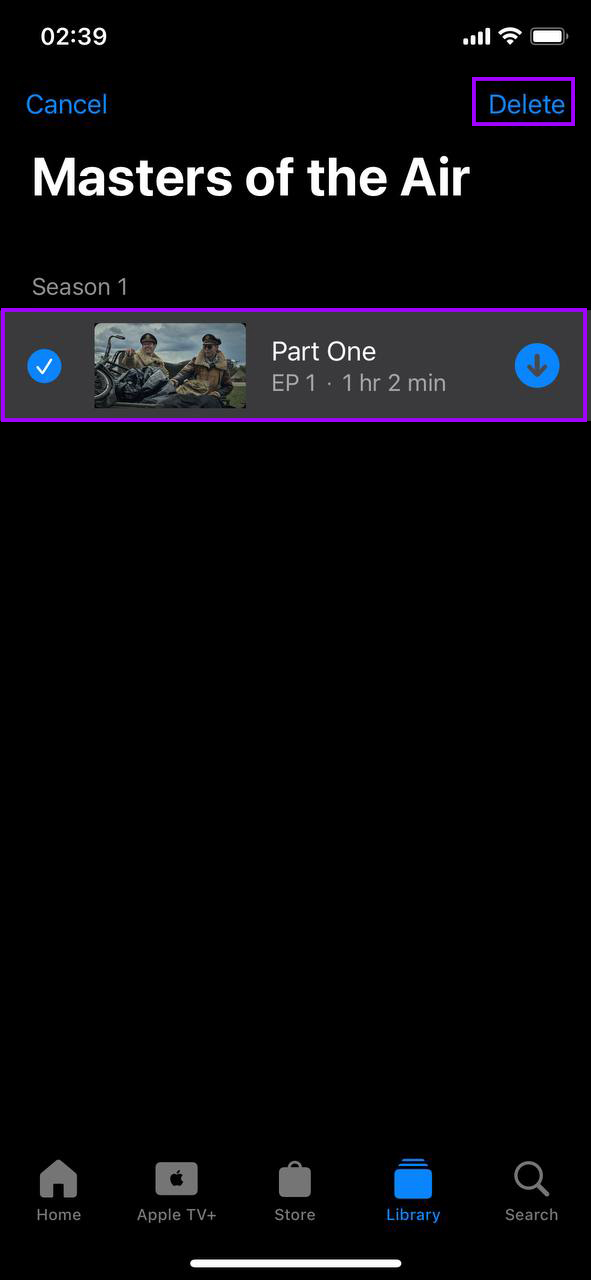
- You may be asked to confirm that you want to delete the media. Confirm to finalize the removal.
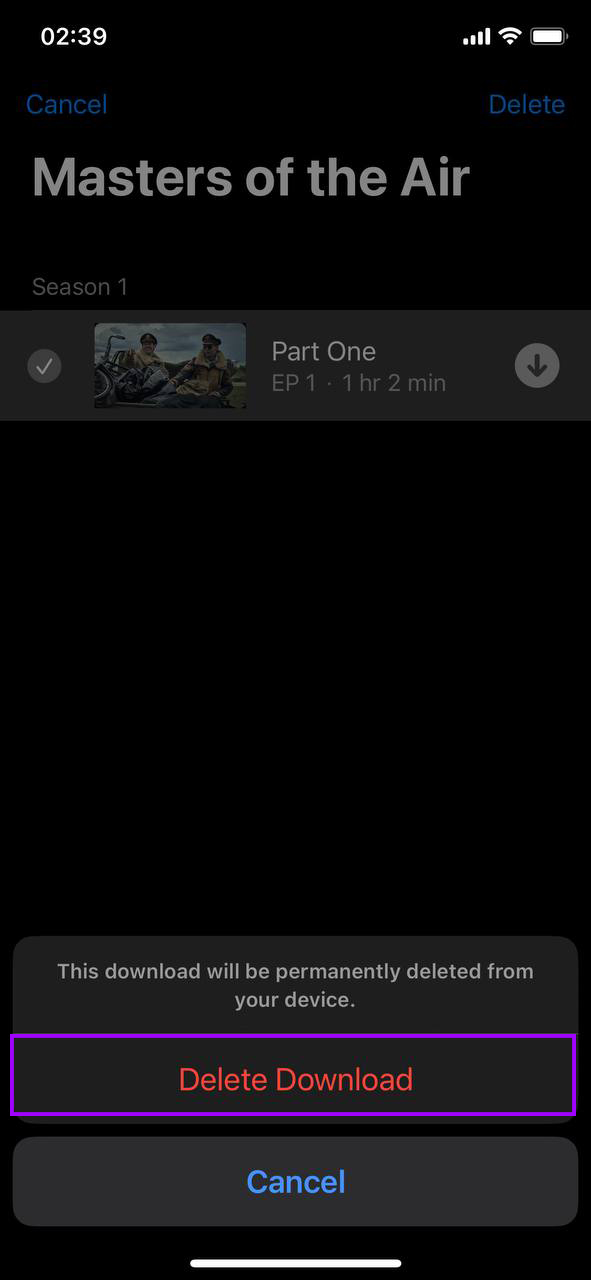
Troubleshooting Common Problems with Synced Content
If you’re having trouble with synced content not deleting properly, here are some quick steps to fix common issues like iCloud sync errors, outdated iTunes settings, or software glitches.
iCloud Sync Problems
Issues with iCloud might stop changes from appearing across your devices:
- Check Wi-Fi connection: Syncing requires a stable internet connection.
- Check iCloud settings: Go to Settings > Your Name > iCloud and make sure syncing is on for the apps you use.
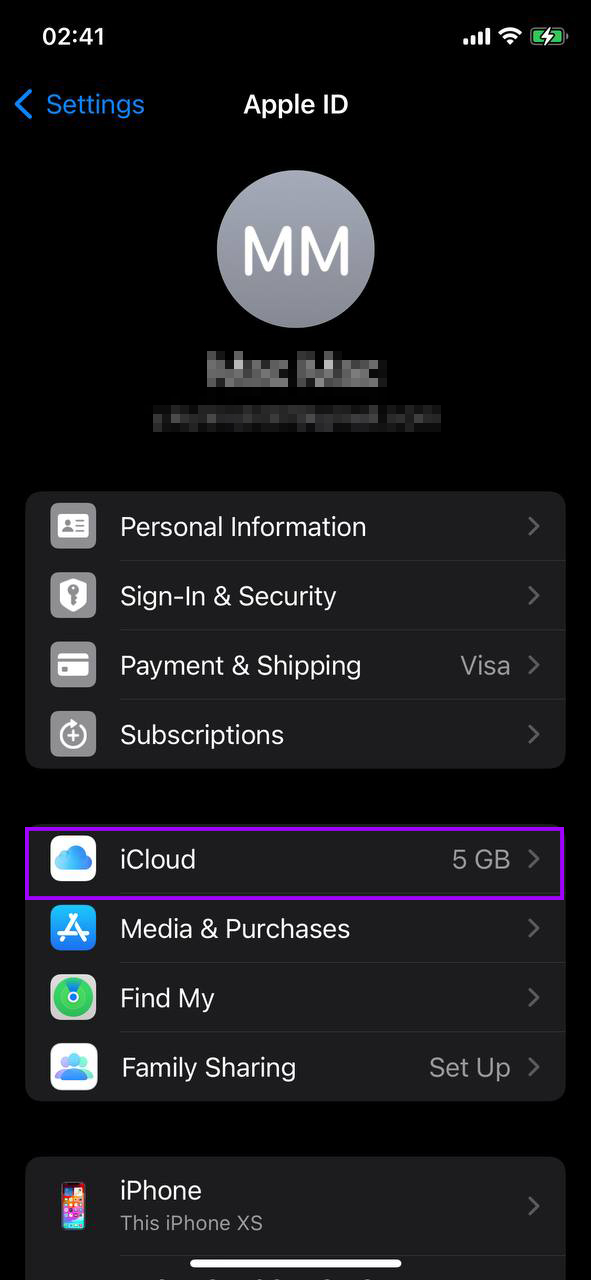
- Restart sync: Turn the sync setting off and on for the troubled app. Wait a few minutes after turning it off before you turn it back on.
Also, feel free to check this page if you have issues with Contacts, Calendars, or Reminders.
Old iTunes Settings
Old iTunes settings might cause syncing problems:
- Update iTunes: Make sure you have the latest version of iTunes on your computer.
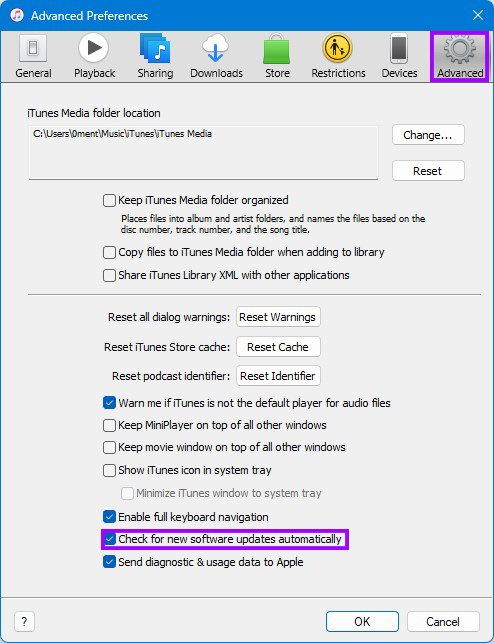
- Adjust sync settings: Connect your device, open iTunes, and go to the device summary to update your preferences.
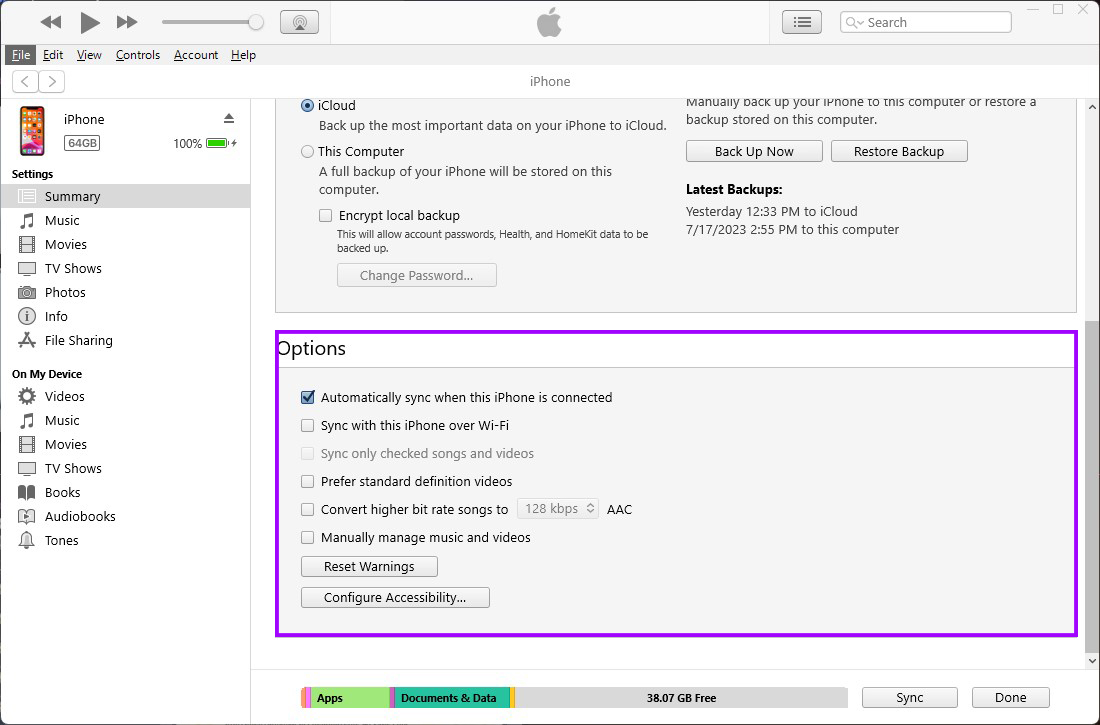
- Reset sync history: In iTunes preferences under Devices, you can reset the sync history to clear errors.
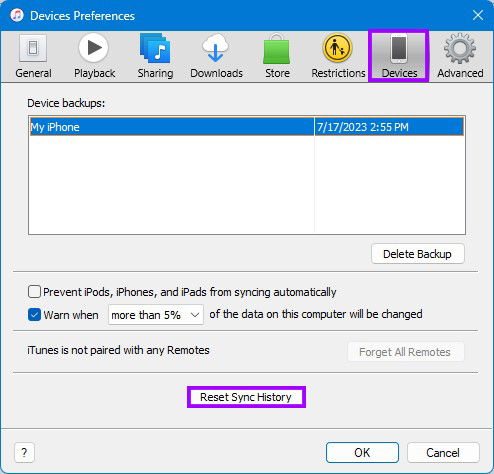
Software Glitches
Software issues can mess up your content management:
- Restart your iPhone: Often, a simple restart can fix minor bugs affecting sync.
- Update iOS: Keep your iPhone updated to the latest iOS to avoid known issues.
- Get help from Apple: If problems continue, Apple Support can offer more detailed help.
These steps should help solve most issues with syncing on your iPhone. Keeping your device and software up to date is key to preventing these problems.
Manage Sync Settings to Prevent Unwanted Syncs
Adjust your iPhone’s sync settings to avoid accidentally syncing unwanted photos, videos, and other media. This guidance outlines how to control these settings effectively.
Manual Syncing in iTunes or Finder
Setting your iPhone to manual sync mode allows you to choose what gets transferred:
- Connect your iPhone to your computer. Open iTunes for Windows and older macOS versions or Finder for macOS Catalina and newer.
- Select your device. It appears in the sidebar in Finder or the top bar in iTunes.

- Access the ‘General’ tab. Check the option ‘Manually manage music, videos, and other content.’
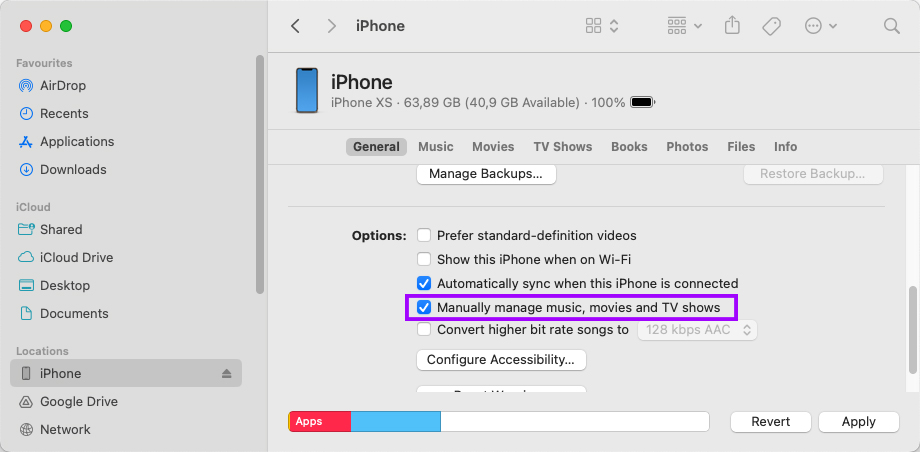
- Save your settings. Click ‘Apply’ to confirm your changes, preventing automatic syncing.
Control iCloud Sync for Photos and Media
You can manage which media syncs through iCloud by adjusting your settings:
- Open your iPhone Settings, tap your name, then select ‘iCloud.’

- To adjust photo settings, tap ‘Photos.’ To control other media, select ‘Manage Storage.’
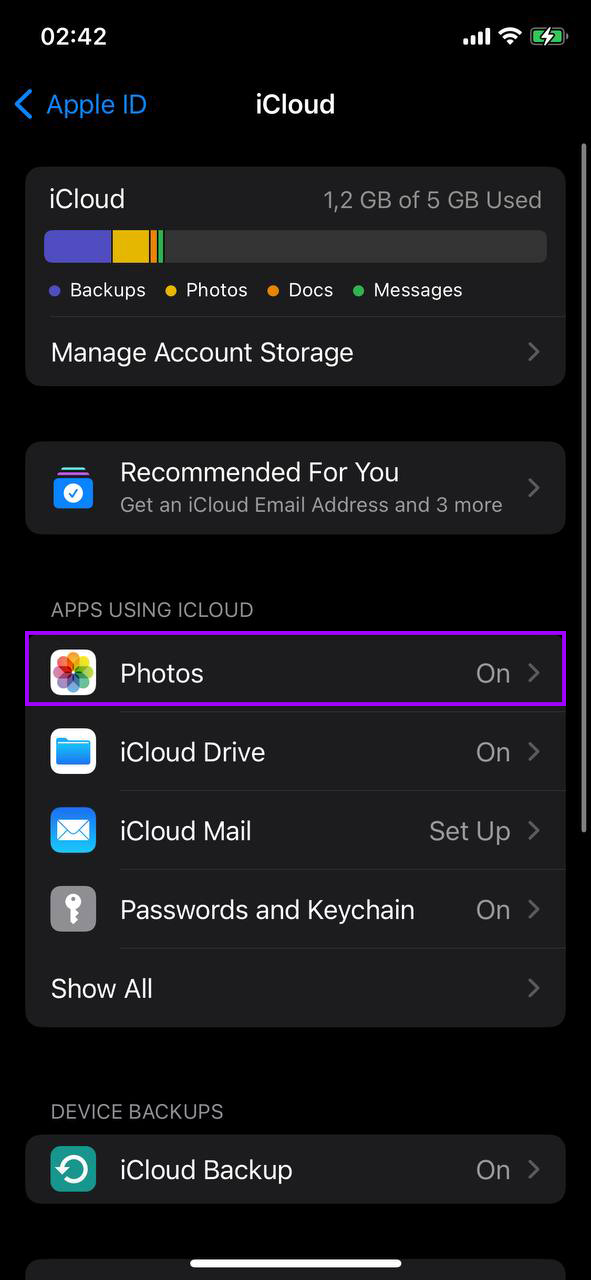
- Disable automatic iCloud sync for photos by turning off ‘iCloud Photos.’ Apply similar settings for other media.
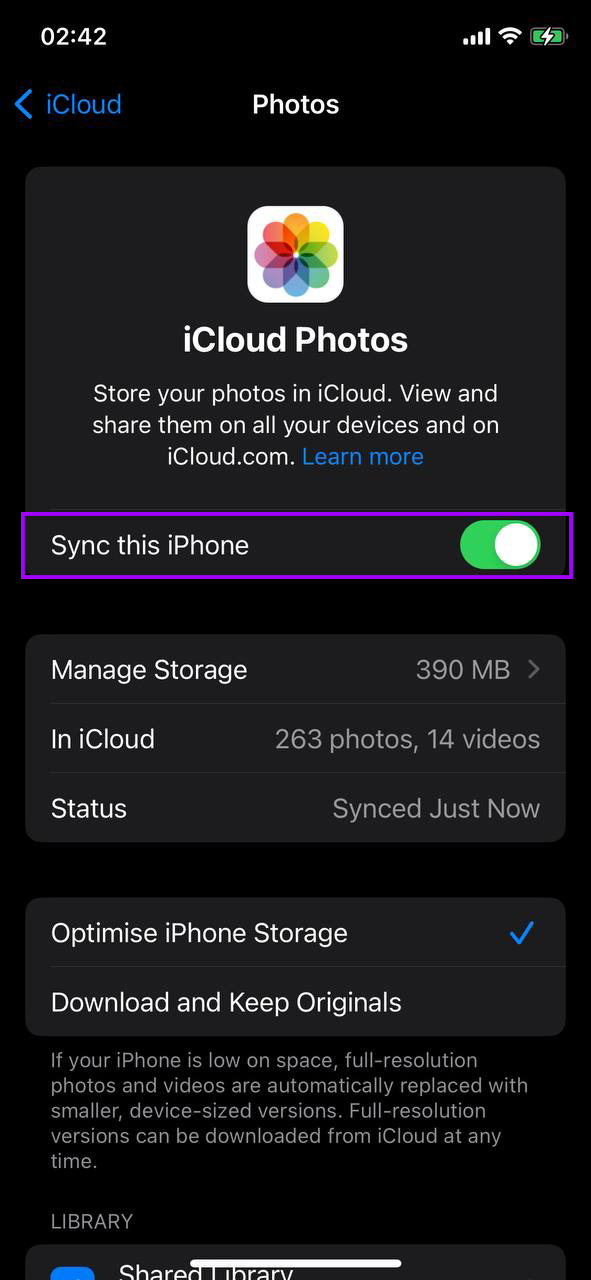
Adjust Device Sync Settings
Keep your device’s syncing in check by customizing each app’s settings:
- Check sync options in apps like Apple TV or Music.
- Turn off auto-sync where unnecessary to keep your data consistent only where needed.
- Modify settings under ‘Accounts & Passwords.’ This menu lets you specify your preferences for app data syncing.
Managing these preferences helps maintain your iPhone’s storage efficiency and ensures that only essential data is kept in sync.
Conclusion
Following this guide, you can now delete synced photos and manage other media types on your iPhone. Use these steps to keep your iPhone’s storage organized and avoid common syncing issues. Regularly update your device and review your sync settings so everything runs smoothly.

















